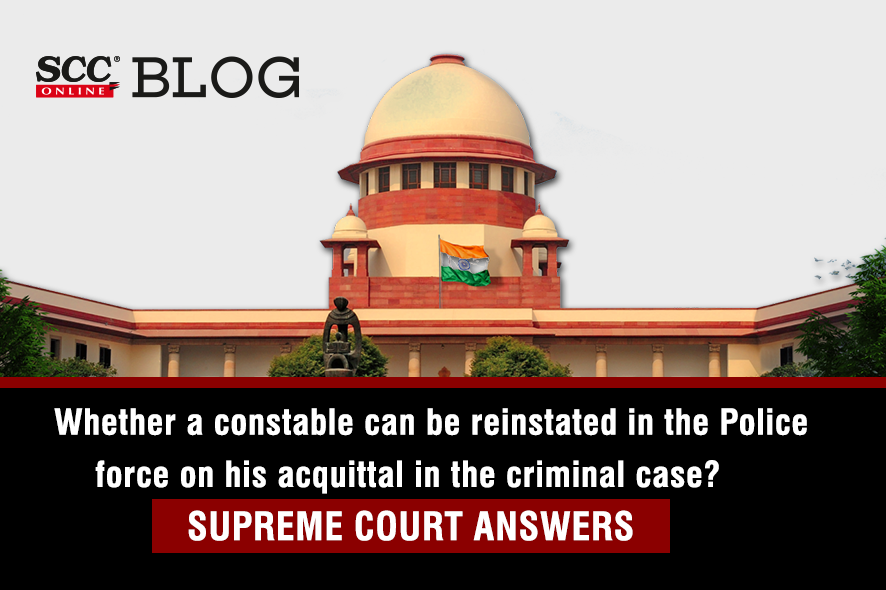Supreme Court: In a special leave petition filed against the judgment and order passed by the Jammu and Kashmir High Court, wherein the High Court has dismissed the appeal filed by the petitioner/appellant and confirmed the order passed by the Single Bench, wherein it was held that the decision of the Director General of Police, the highest functionary in the hierarchy of police department, to consider the suitability of the appellant for induction into police force, could not be called into question , the division bench of Ajay Rastogi and Bela M. Trivedi, JJ. upheld the impugned order.
In the case at hand, the petitioner had successfully participated in the selection process conducted in 2008-2009 for the post of constable in the Jammu and Kashmir Executive Police, and he was issued an appointment letter. The petitioner thereafter was deputed to the Police Training School to undergo the nine-month course. Thereafter the search slips of the ten newly recruited constables including the petitioner, were sent to the Director, Fingerprint Bureau and National Crime Records Bureau, New Delhi, for record and reference purpose, and the said Bureau responded that the petitioner was involved in a case registered under Section 379 of Ranbir Penal Code (‘RPC’) and Section 6 of Forest Act. Being aggrieved by the said order, the petitioner filed the writ petition seeking reinstatement with consequential benefits.
The issue in this case is whether the Director General of Police, Jammu & Kashmir, Srinagar, who after examining the record of the petitioner had concluded that the petitioner was not a fit person to hold the post into the police force in view of his criminal background, could be compelled to reinstate the petitioner on his acquittal in the criminal case?
The petitioner submitted that in the criminal trial, the prosecution had failed to examine the investigating officer and failed to bring home the charges levelled against the petitioner, and therefore his acquittal in the said case was required to be treated as an honorable acquittal.
The Court took note of Commr. of Police v. Mehar Singh, (2013) 7 SCC 685, wherein it was held that if it is found by the Screening Committee that the person against whom a serious case involving moral turpitude is registered is discharged on technical grounds or is acquitted of the same charge, but the acquittal is not honourable, the Screening Committee would be entitled to cancel his candidature. Further, if the Screening Committee’s decision was not mala fide or actuated by extraneous considerations, then the same could not be questioned.
The Court said that the expression “honourable acquittal” had also come up for consideration in Reserve Bank of India v. Bhopal Singh Panchal, (1994) 1 SCC 541 and in R.P. Kapur v. Union of India, (1964) 5 SCR 431, wherein it was held inter alia that the mere acquittal does not entitle an employee to reinstatement in service. The acquittal has to be honourable. As such, the expressions “honourable acquittal”, “acquitted of blame”, “fully exonerated” are unknown to the Code of Criminal Procedure or the Penal Code, and it is difficult to define precisely what is meant by expressions “honourable acquittal”.
The Court further said that the High Court in the impugned judgement has elaborately dealt with each, and every aspect of the issues involved, while upholding the order of the Single Bench to the effect that the Director General being the highest functionary in the police hierarchy, was the best judge to consider the suitability of the petitioner for induction into the police force. Thus, it is held that the impugned order is just and proper, and there is any infirmity or illegality in the impugned order.
[Imtiyaz Ahmad Malla v. State of J&K, 2023 SCC OnLine SC 205, decided on 28-02-2023]
Judgment by: Justice Bela M. Trivedi






